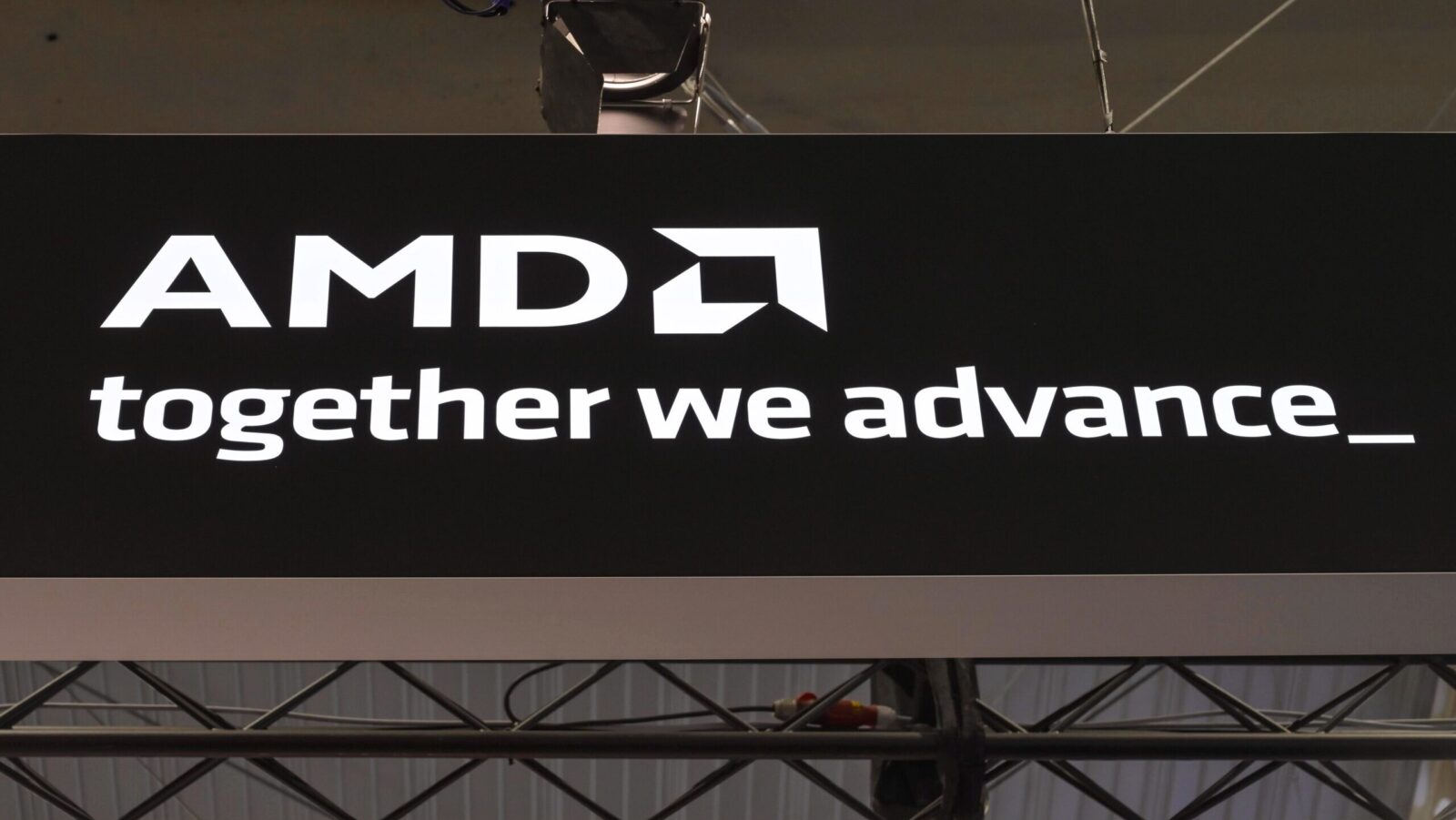Good morning.
In France, the word for this is impasse. In America, we call it gridlock, which seems so much less delicate. On Monday, French Prime Minister Sébastien Lecornu tendered his resignation just 27 days into the job and little more than 12 hours after his cabinet was named. In doing so, he became La République’s third prime minister to quit since December 2024.
The country’s divided parliament can’t agree on a plan for a runaway budget deficit, which reached 5.8% of GDP last year. Meanwhile, France’s national debt, at 114% of GDP, trails only Greece and Italy among eurozone economies. The country’s blue-chip CAC 40 index fell 1.3% on Monday, making it the worst-performing index in Europe. With the US government still in shutdown, the S&P 500 rose 0.4%, which by comparison is practically on cloud neuf.
*Presented by VanEck. Stock data as of market close on October 6, 2025.
Invest in a future built on semiconductors with the SMH ETF.
*Please see important SMH disclosures below.
OpenAI Powers Up With Massive Deal for AMD Chips

Nvidia’s got some competition: Rival chip-maker AMD signed a deal with OpenAI to provide its GPUs to the AI leader. The five-year agreement will see OpenAI scoop up hundreds of thousands of AMD’s chips, or about six gigawatts worth. That’s enough to power roughly 5 million US homes. OpenAI will put the chips to work in data centers that’ll provide the staggering compute ChatGPT needs to remain everyone’s favorite therapist.
AMD, whose stock surged nearly 38% yesterday morning, said the tie-up will generate tens of billions of dollars in revenue. OpenAI will also receive warrants enabling it to buy up to 10% of AMD stock at a penny a share, to be awarded over time as certain milestones are met.
Chip Off Your Shoulder
Nvidia is the No. 1 AI chip seller, with Mizuho Securities estimating that the company controls more than 70% of the market. Nvidia’s expected to make more than six times as much revenue as AMD this year ($206 billion vs. $33 billion).
But with the need for AI power growing fast, rivals have ample room to butt in, especially as they work to offer cheaper alternatives to Nvidia’s industry-leading, but pricey, chips. And OpenAI is playing the field to get power from every corner it can as the AI industry becomes increasingly crowded and costly:
- OpenAI is working with Broadcom to create its own AI chip, which will help train its tech, as part of a $10 billion partnership. Meanwhile, OpenAI also made a $300 billion deal with cloud leader Oracle last month to secure 4.5 gigawatts of cloud computing power through the tech leader’s data centers.
- Additionally, OpenAI has a deal with Nvidia on the horizon in which Nvidia plans to invest $100 billion in OpenAI over the next decade; OpenAI is expected to use that investment in part to buy 10 gigawatts’ worth of Nvidia’s chips. But while Nvidia and OpenAI have signed a letter of intent, AMD may yet beat them to the punch. OpenAI and AMD are planning to jumpstart their arrangement by filing for regulatory approval ASAP. Plus, the AMD deal would give OpenAI the power to influence the chipmakers’ plans, which could make it a more appealing partner than Nvidia.
Bubble Trouble: OpenAI CEO Sam Altman is channeling the Kylo Ren “MORE” meme. The company has made deals totaling about $1 trillion over the past two weeks as Altman underscores the need for more computing power to meet AI’s future requirements. Including other tech companies like Alphabet and Microsoft, The Wall Street Journal reports that spending on AI has far exceeded any other past technological revolution (railroads, electricity, fiber-optic). Whether or not the industry’s a bubble on the verge of bursting, the leaders at its helm stand by the underlying tech.
What If You Could Have The Greener Grass On Your Side?

With LPL Financial, you can. We remove the things holding you back and provide the services to help push you forward. Because when it comes to your finances, your business, your future, we believe the only question should be, what if you could?
Constellation Brands’ Star Dims as Inflation Chokes Consumers’ Beer Budgets
Shareholders were expecting to pour one out for Constellation Brands ahead of its second-quarter earnings report on Monday. Instead, they may have found enough reason to raise a glass.
That’s because the maker of Corona and Modelo managed to ever-so-slightly beat expectations amid a broader downturn in the alcohol market. Still, there are plenty of reasons to see the pint glass as half-empty.
Drinks? In This Economy?
2025 has delivered a triple-whammy for Constellation. While its imported beer itself is exempt from tariffs, the aluminum cans it’s delivered in have been slapped with a 50% import tax (which doesn’t apply to bottled beer). Meanwhile, broader economic uncertainty has sparked a pullback in discretionary consumer spending; Latino consumers in the US, who represent about half of Constellation’s consumer base, have pulled back amid widespread immigration raids. And Gen Z, as has been much fretted over, continues to be largely disinterested in happy hour anyway. In fact, just 54% of US adults said they consume alcohol in a Gallup poll released in August, marking the lowest level in the survey’s roughly 90-year history.
In other words, trouble is brewing for Constellation. Michelob Ultra overtook Modelo as America’s top-selling beer in the 52 weeks ending in mid-September, according to Circana data seen by Bloomberg. The company’s share price is down about 37% so far this year, and it fell 17% in September alone. During the same month, Constellation lowered its full-year guidance, while Barclays analysts downgraded the company’s stock, writing that they “struggle to think of a positive catalyst for US beer trends.” Ouch.
Monday’s results showed the downturn continuing, albeit slightly more slowly than expected:
- Net sales in the quarter totaled $2.48 billion — down from $2.92 billion a year ago, but still besting, slightly, the $2.46 billion that Wall Street analysts had expected. The company overall swung to a profit of $466 million.
- Still, beer sales were down 7% overall year-over-year. In addition to that, revenue in its wine and spirits category, which includes Kim Crawford wine and Casa Noble tequila, slid 19% year-over-year, following a 21% drop in the previous quarter.
Micro Burst: It’s not just the major beer brands. The craft beer boom of the 2010s is finally giving way to a mini-bust, according to an article published by The New York Times on Monday. According to the Brewers Association, more craft breweries have closed in the past 18 months than have opened. That hasn’t happened in over 20 years. Pour one out for the IPA-loving millennial in your life.
Cut Fees, Not Growth, With Smarter Global Payments. Stop wasting money on hidden bank fees and forced currency conversions. Access Airwallex and The Daily Upside’s on-demand webinar to learn how to open accounts in new markets, avoid recurring conversion costs, and capture growth opportunities with smarter payment strategies designed to keep more of your budget working for you. Access the webinar now.
Fifth Third Targets Top 10 Bank Ranking with Comerica Takeover
A couple of regional banks are teaming up to break into the Top 10 list of the biggest banks in America, continuing a trend of upward mobility in the industry.
Fifth Third said Monday that it struck a $10.9 billion, all-stock deal to acquire Comerica, a buyout that would create the country’s ninth-largest bank with roughly $288 billion in assets.
A Surging of Merging
Back in the late winter of 2023, a chill struck banking M&A. The third- and fourth-largest bank failures in US history, of Silicon Valley Bank and Signature Bank, happened that March. SVB’s collapse also triggered a bank run that prompted the collapse of First Republic, which would become the second-largest bank failure in US history two months later.
The long lull in regional banking consolidation since then appears to be ending. Part of that can be attributed to the Trump administration’s pledge to take a lighter regulatory approach, including a commitment to quicker antitrust approvals. Last month, PNC announced a $4.1 billion cash-and-stock agreement to buy FirstBank, just days after Columbia Banking System completed a $2.4 billion acquisition of Pacific Premier. The spate of regional bank mergers is aimed at boosting competitiveness against the likes of Bank of America, JPMorgan Chase and Wells Fargo, which dominate US lending. That brings us to Comerica, which, as it happens, came under significant stress during the 2023 regional bank crisis, largely due to concerns from ratings firms about its risk of deposit flight. Activist investor HoldCo has been pressuring the bank since July to sell itself to a bigger lender, citing underperformance of its shares compared with peers. On Monday, one suitor capitalized:
- Cincinnati-based Fifth Third has been making a concerted effort to expand beyond its Midwest base into the Southeast, where major metro areas like Atlanta, Dallas and Houston are among the fastest-growing in the country. Acquiring Dallas-based Comerica gives it an immediate foothold and accelerates its plan to have half of Fifth Third branches located in the Southeast by 2030.
- In exchange, Comerica shareholders will receive 1.8 Fifth Third shares for every share they own, worth roughly $82.88 per share or a 20% premium to Comerica’s 10-day volume-weighted average stock price. Fifth Third shares fell 1.4% Monday, while Comerica shares rose 13.7%.
Who’s Next? “Look out for the next 12 months: We should see a lot more mergers,” celebrated Wells Fargo analyst Mike Mayo said on CNBC Monday. His team views several mid-sized lenders, including Banc of California, BankUnited and First Horizon, as potential takeover targets as banks seek to expand. The KBW Nasdaq Regional Banking index rose 1.2% Monday.
Extra Upside
- Coming Attractions: Shares of Tesla popped 5% on Monday after the company released a teaser video promising a special announcement today, with many speculating a low-cost model could finally be revealed.
- 60 Minutes: The iconic television news magazine, and the rest of CBS News, officially have a new boss, as Skydance appointed Bari Weiss of the conservative digital media outlet The Free Press as editor-in-chief.
- Rejected: Supreme Court declines Google’s request to halt a judge’s orders requiring changes to its app store after losing its lawsuit against Epic Games.
Just For Fun
Disclaimer
*Important Disclosures
VanEck Semiconductor ETF (SMH): Average Annual Total Returns Quarter End as of 6/30/2025* (%)

*Returns less than one year are not annualized.
The performance data quoted represents past performance. Past performance is not a guarantee of future results. Investment return and principal value of an investment will fluctuate so that an investor’s shares, when redeemed, may be worth more or less than their original cost. Performance may be lower or higher than performance data quoted. Please call 800.826.2333 or visit vaneck.com for performance current to the most recent month ended.
*Investing involves substantial risk and high volatility, including possible loss of principal. Visit vaneck.com to read and consider the prospectus, containing the investment objectives, risks, and fees of the funds, carefully before investing. Past performance is no guarantee of future results. VanEck mutual funds and ETFs are distributed by VanEck Securities Corporation, Distributor, a wholly owned subsidiary of VanEck Associates Corporation.

